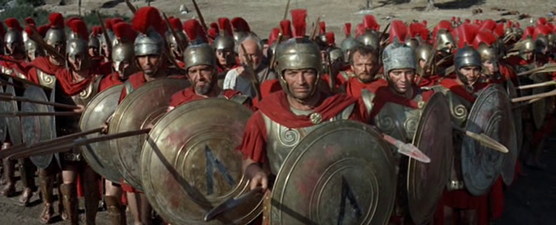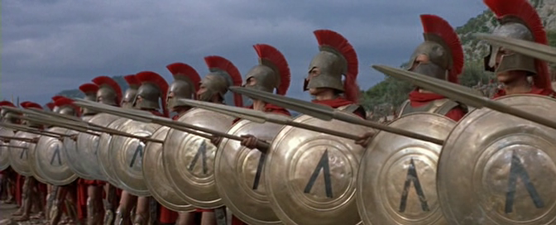- Also Known As:
- Unknown
- Year:
- 1961
- Country:
- Predominant Genre:
- Historical
- Director:
- Outstanding Performances:
- Premiss:
- Military spearhead of 300 soldiers battles an entire invading army.
- Themes:
- Communism | Courage | Destiny | Emotional repression | Family | Identity | Loyalty | Narcissism | Personal | Personal change | Political | Republicanism | Self-belief | Self-expression | Totalitarianism | White culture
- Similar to:

- Review Format:
- DVD
With This or On This
Women of Britain, Say Go!
White propaganda expressed in expository dialogue of exceeding banality. Even though there are some fine actors here, the characters remain resolutely two-dimensional despite the best efforts of the performers.
The political simplifications of endlessly-stating that the Ancient Greek city states were endlessly disunited are designed to mask the attempt to make this film palatable to modern audiences by making the Asiatic Persians substitutes for the Asiatic Soviets; while offering no real insight into life in either circa 480 BC or 1961 AD.
The Battle of Thermopylae is handsomely-mounted (the only real reason this entertainment was ever produced) with large numbers of butch, hairy-legged Caucasian males dressed in battle skirts and ready to die for Sparta - along with the political delusion of a united Greece.
Diane BAKER is very fetching (with winning ways) and Ralph RICHARDSON does reasonably-well at making the indigestible dialogue sound convincing. But what makes this movie less than it could have been is the White belief that the Personal is Political; explaining why none of the characters possess a private life that is considered as important as their duties to the state.






No comments:
Post a Comment